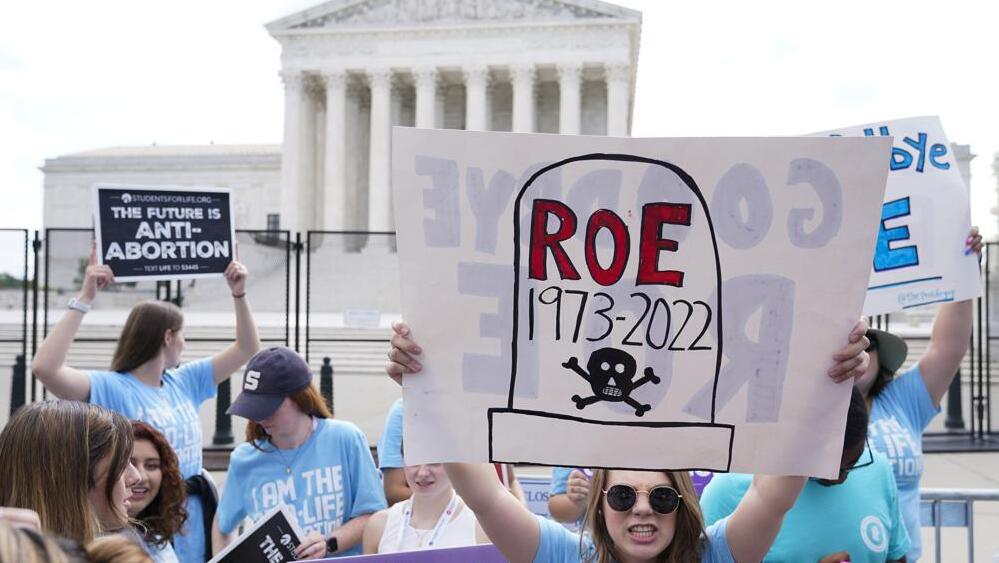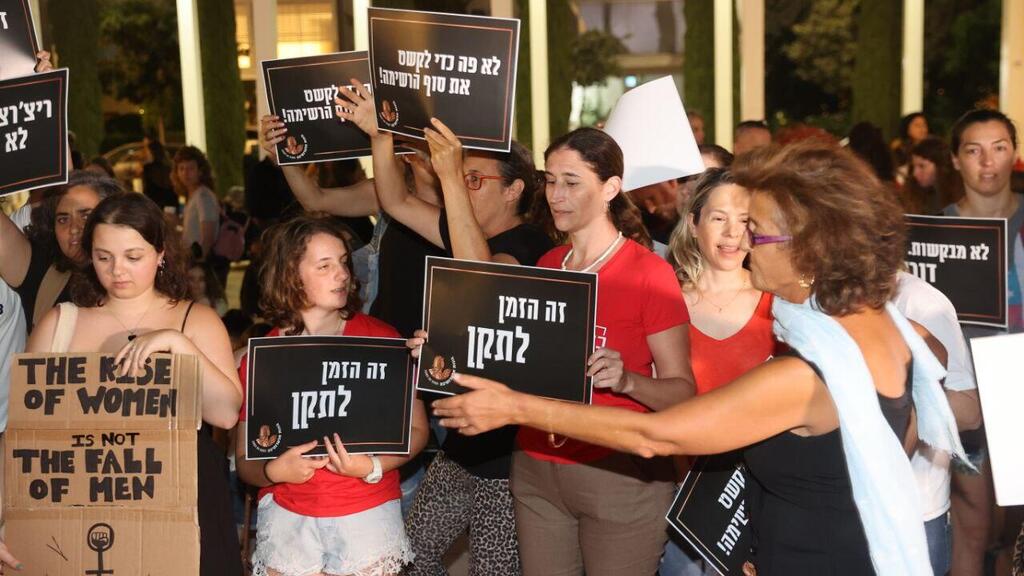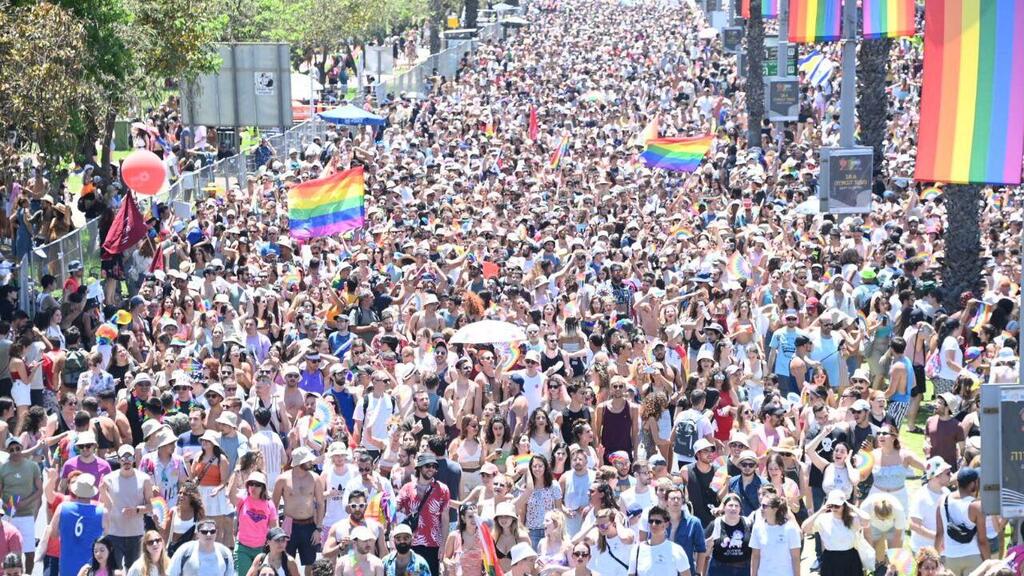Getting your Trinity Audio player ready...
Nine women are expected to serve in the incoming coalition, compared to 30 in the outgoing one; only 28 female lawmakers will serve in the 25th Knesset — 23% of all members of the chamber.
This lack of representation of 51% of the population would have been disturbing even if we lived in some utopian reality of complete gender equality
But the gaps between Israeli men and women remain vast, and the fight for equal gender rights is far from over, making it all the more worrying.
If we can take something away from the global trends of recent years, it is that nothing is granted. There is no legislation that can not be overturned, no social milestone that can not be expunged — including those pertaining to our bodily autonomy.
Just look at the United States, the city upon a hill, which was hijacked by conservative elements that criminalized women's right to an abortion. Do we really think it won't happen here?
4 View gallery


Demonstrators protest about abortion outside the Supreme Court in Washington
(Photo: AP)
But let's not get ahead of ourselves and at least recognize the fact that the next government will not have enough women on board to advocate for the needs, interests, and goals of women.
Female decision-makers will be sitting in meetings side by side with a cohort of conservative politicos who have previously expressed their misogynistic views.
"Israel's history is proof that most significant women's rights legislation in fields of employment and wage gaps, sexual harassment, domestic violence and equity, has been promoted by women," Executive Director at Israel Women's Network Einat Fischer Lalo said on Wednesday in response to the low representation for women projected in the upcoming Knesset, and she's right.
Take for example the COVID-19 pandemic. The government was hit with criticism for a lack of a female perspective in its pandemic response, which took a heavy toll on citizens.
Think tanks Adva Center and the Van Leer Jerusalem Institute released a report in which they defined the pandemic as a "gendered crisis" that has widened the gap between the genders and a setback in the battle for equality, mostly since women were first to be pushed out of jobs amid the lockdowns.
The emerging government will have to tackle a whole host of bills and programs that are crucial for the progress of women's rights in Israel.
One of many examples is the previous objection of many of the emerging government's lawmakers to Israel adopting the UN's Convention on the Elimination of All Forms of Discrimination against Women.
While lack of female representation is one of the emerging government's most prominent shortfalls, it also offers no representation to minorities and disadvantaged populations. Besides being left out of decision-making positions, these groups' interests won't be taken into account by representatives.
Many in the gay community fear any progress on issues of marriage, parenting, and bans on conversion therapy will be curtailed. Efforts to eliminate violence and discrimination against the gay community are also likely to take a back seat.
With this in mind, some members of the next government have made harsh statements regarding the LGBTQIA2S+ community, with some going as far as calling to ban same-sex relationships.
Additionally, the Arab sector, which makes up about 20% of Israel's population, has good reasons to be worried too. The 25th Knesset is setting on its journey at a time when crime is claiming countless innocent victims in Arab communities, including women and children.
Meanwhile, education, healthcare, welfare, and employment in the Arab sector lag far behind and many families live below the poverty line. This is the result of years of neglect, and in the absence of someone to fight for their rights, it is only going to get worse.
While not all the votes have been counted yet, but as things stand, it is impossible not to fear a situation where the next government will drag us away from equality.




